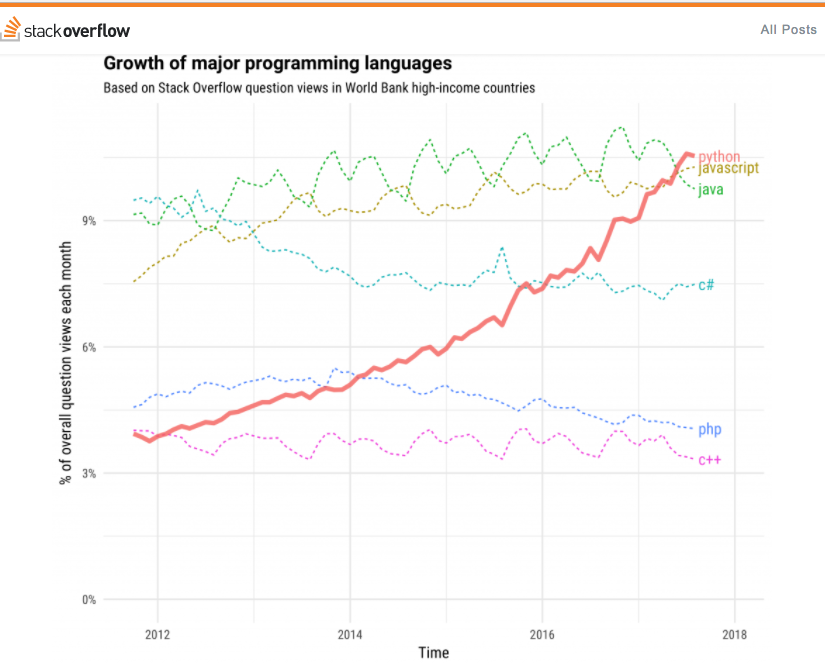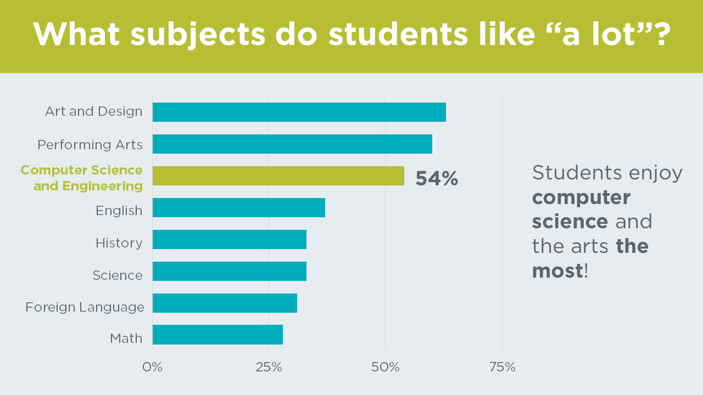How quickly this week seems to have gone! Didn't have time to read the news? Fear not - here's our weekly best of the web reading list, full of education and maker news for you to enjoy. Happy reading!
Teaching the curriculum of the future, not the past
Computer science shouldn’t be relegated to after-school clubs, robotics contests or hackathons.
Great piece from the World Economics Forum on why schools should re-evaluate their curriculum, and place computer science more prominently. As the chart above shows, only the arts come higher as subjects that engage children's attention. Indeed, the implied schism between what we think of as the arts, and the sciences is tragic, with students often forced to choose between the two.
Children are so much more than grades
Should we retain an exam system that year-in, year-out creates a forgotten third?
This year's GCSE results tell us that 36 percent of 16-year olds failed to secure a standard pass (Grade 4) in English and maths combined. These students were awarded grades 1, 2 and 3 (the unfortunately dubbed "123ers"). This has led the Association of School and College Leaders (ASCL) to set up a commission of inquiry into what we are calling "the forgotten third".
"The commission's focus is English, and the heart of our final recommendations will lie there. Equally, if we conclude that 190,000- plus students are trapped annually by wider system failure, we shall say so, to policymakers, examination boards, and the wider professional community," says Roy Blatchford, the commission chair at the ASCL.
How ethnic studies connects learning with students' identities
Students develop "a sense of agency". So they aren't just learning about history, they're engaging with it and shaping it — reading the word and the world.
This week a GCSE sociology book was pulled from shelves amid charges of racism. The book claimed that Caribbean fathers are “largely absent” and that "working class children often lack the appropriate attitudes that are necessary to succeed in education."
"If we had an educational system that actually studied and analysed the black experience, including the impact of the slave trade and racism in society, it would be different," Says Tamu Thomas, co-founder of Motherhood Reconstructed.
Meanwhile, on the other side of the pond, ethnic studies has been expanding on the West Coast and in pockets across the US. As a recent KQED article shows, when students take courses that connect with their lived experience, engagement increases, as do literacy skills, overall achievement, and attitudes toward learning.
7 hours of Python for beginners (free)

If you fancy learning the basics of the fastest-growing major programming language, Python, check out this free 7-hour course.
Laurene Powell Jobs’s big bet on digital curriculum
For teachers who think of science education as oriented around the memorization of facts, the Next Generation standards are a dramatic departure.
A few years ago Amplify, the education startup previously owned by media mogul Rupert Murdoch, was best known as one of the costliest mistakes in education, with losses of over $1bn (we rather enjoyed the schadenfreude). Now, three years after it was acquired by Laurene Powell Jobs, Fast Company examines, the company is operating with a greater sense of focus. But can a leopard change its spots?
We Make The Future : Ep01 : Change with Dr. William Rankin
Finally, this week we launched our brand new podcast, We Make The Future. In the first episode, host Andrew Webb interviews Dr. William Rankin about the idea of change; both in the classroom as well as in wider society.


